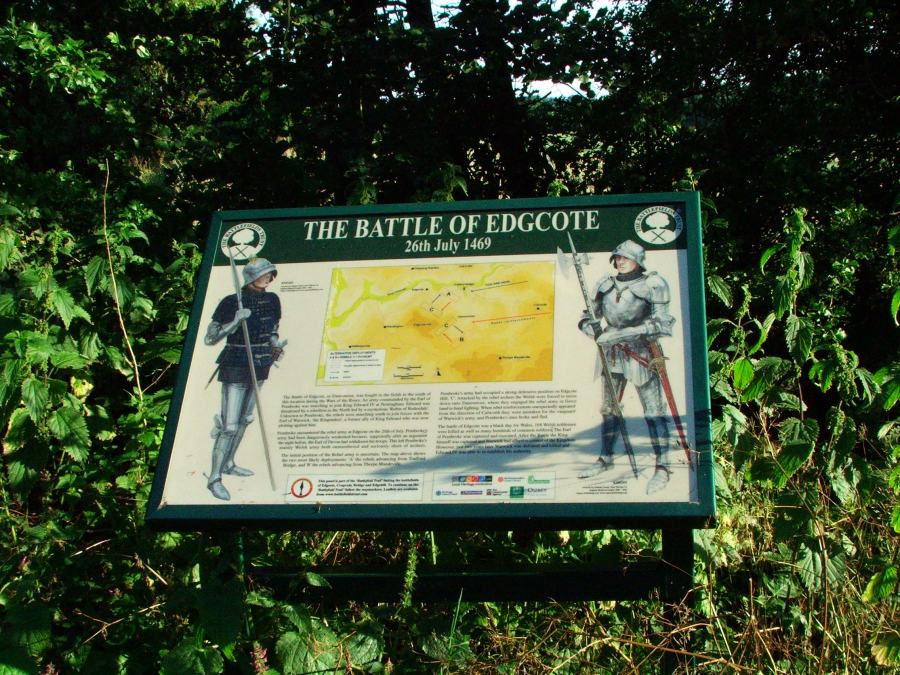In July 1469, Richard Neville, Earl of Warwick, better known as the ‘Kingmaker’, one time mentor of Edward IV rebelled against his protege. An army led by the mysterious ‘Robin of Redesdale’ marched down from the north of England to engage Edward in battle. Edward sent an army led by the Earls of Pembroke and Devon to meet them.
After an initial clash near Northampton, the two sides engaged on 24 July 1469 near the villages of Edgcote and Chipping Warden at a place known as Danes Moor.
Pembroke’s army had been dangerously weakened because, supposedly after an argument the night before, the Earl of Devon had withdrawn his troops. This left Pembroke without archers. The royal army initially held a commanding hilltop position but an attack by the rebel archers forced Pembroke to abandon the position and engage in hand to hand fighting on the valley floor.

Pembroke’s army was on the brink of success when rebel reinforcements arrived from Northampton. Thinking it was Warwick’s whole army, Pembroke’s troops broke and fled only to be cut down by the rebels.
Pembroke himself was captured and then executed three days later at Queen Eleanor’s Cross in Northampton. In the following days the king himself was taken prisoner near Coventry. Earl Rivers, father of the Queen was also captured and executed.
With King Edward and the old King Henry VI under his ‘protection’, Warwick was in effective control of the kingdom. Unknown numbers of Welshmen including 168 Nobles were killed in the battle.
Over a century later the Welsh poets were still calling for revenge on those responsible for the “unique treachery” and to exact judgement on the men of the north. Another future king – Henry Tudor, at the time a twelve year old ward of Pembroke, may also have been at the battle but managed to escape to eventually become King Henry VII.

NB The Battlefield Trust signboard near the battle site states the erroneous date of 26 July for the battle. Work by the Society using a full range of source, including the writings of the Welsh poets and English administrative records, has determined that the date quoted in the most common English chronicles is incorrect and that the battle took place two days earlier.
